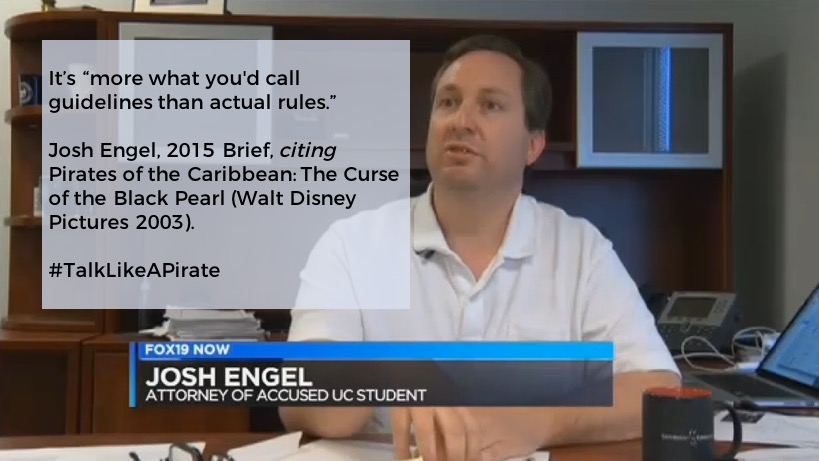
In honor of Talk Like a Pirate Day, we remember the brief Engel & Martin filed in the Fifth Circuit Court of Appeals that contained a discussion of the Federal Laws against Piracy.
The issue came up in a case involving the due process rights of students. Part of the challenge to the discipline imposed by the school was that the school had changed the code of conduct after the alleged incident, and was seeking to apply new rules to old conduct. We argued that violated due process The school claimed that the conduct was prohibited under both the old and new rules.
We argued by the metaphor that the law of piracy had changed in 1818. A 1790 law defined piracy as “murder or robbery . . .” upon the high seas. But, in 1819, in response to a decision of the Supreme, Congress changed the definition of the statute to simply prohibit, “the crime of piracy, as defined by the law of nations.” We said, “Under the Defendants’ logic, if Jack Sparrow committed a simple theft of the high seas (an act that does not include either robbery or murder) in 1817, he could still later be tried under the 1818 definition of piracy.”
The best part, in our opinion, is Footnote 8, which quotes Pirates of the Carribbean and suggests that the schools’ rules “were more what you’d call guidelines.”
The legal nerds will note the proper Blue Book form in the citation to the movie!
One sad note: we ended up losing the case in a disappointing 2-1 decision.

